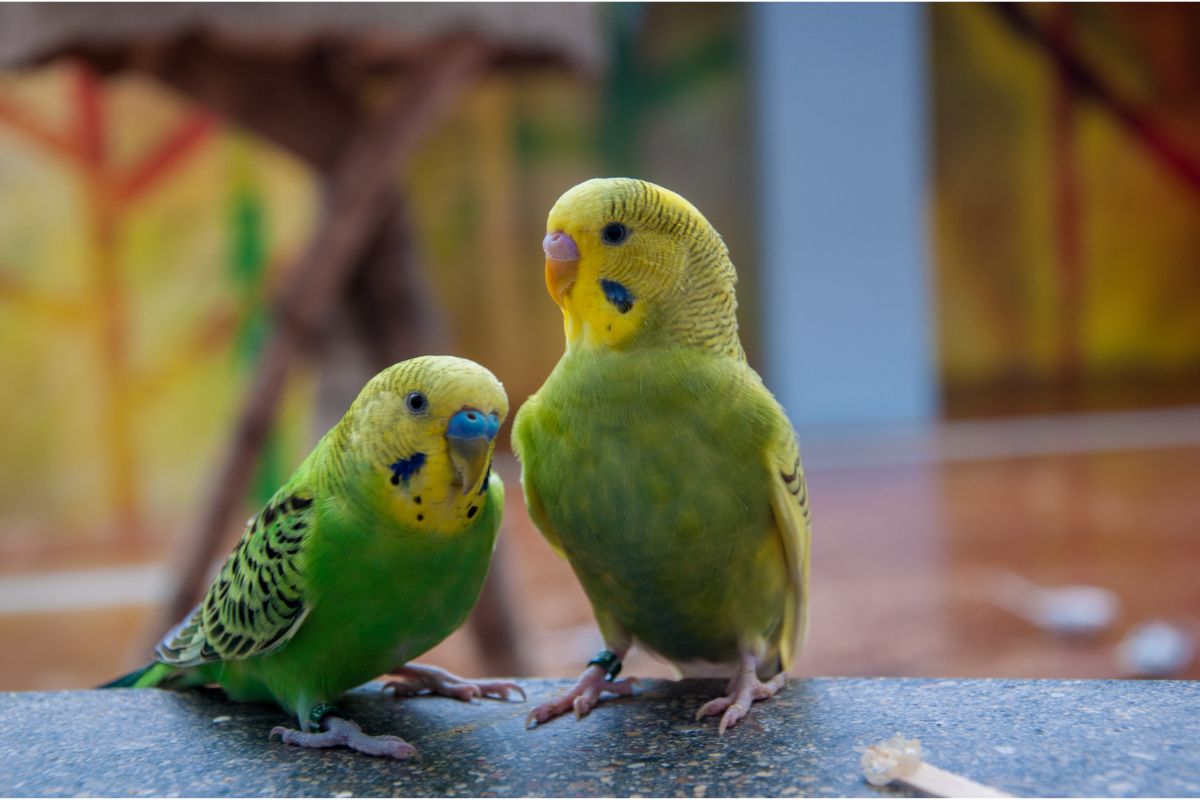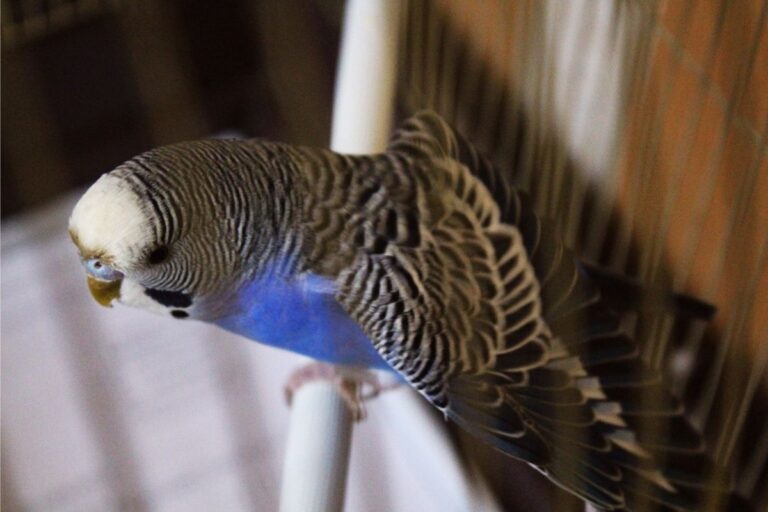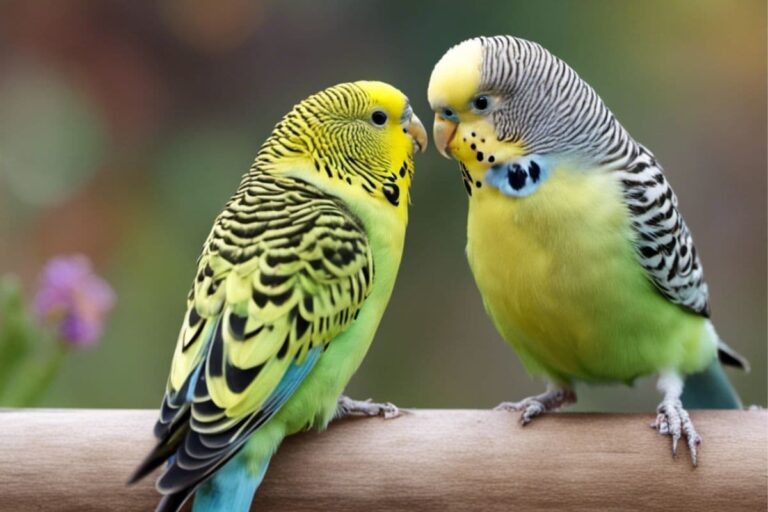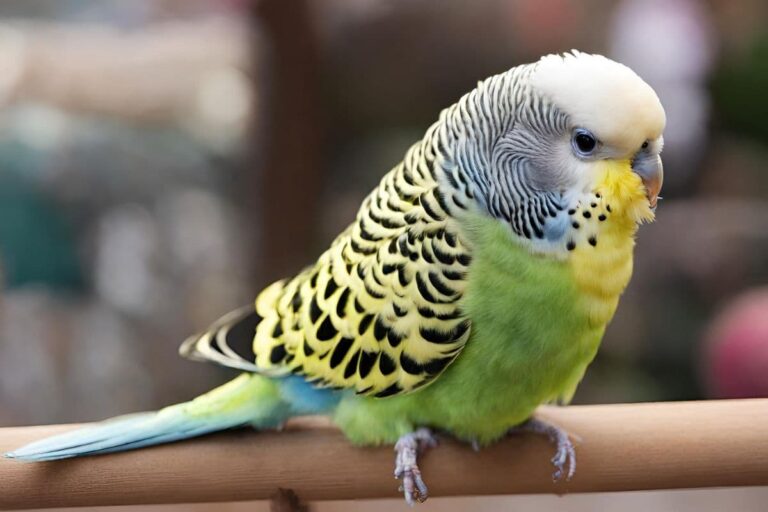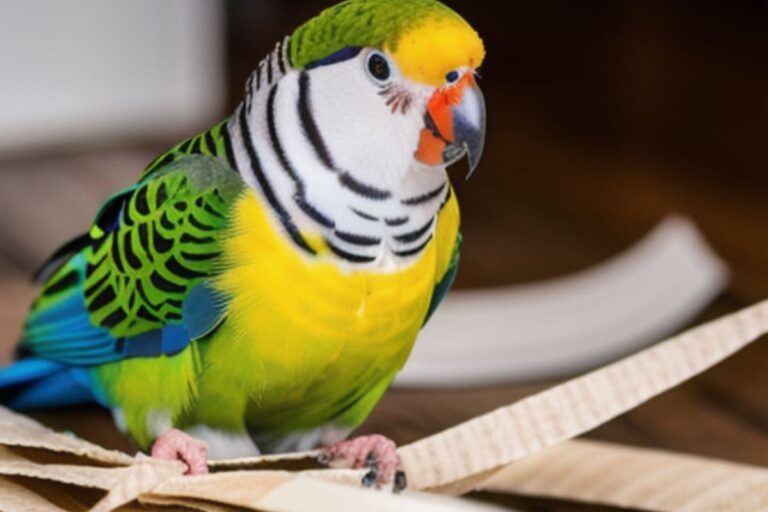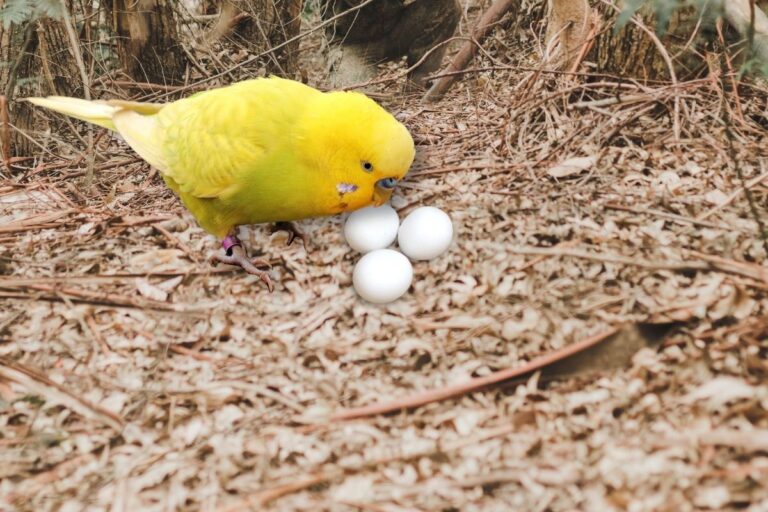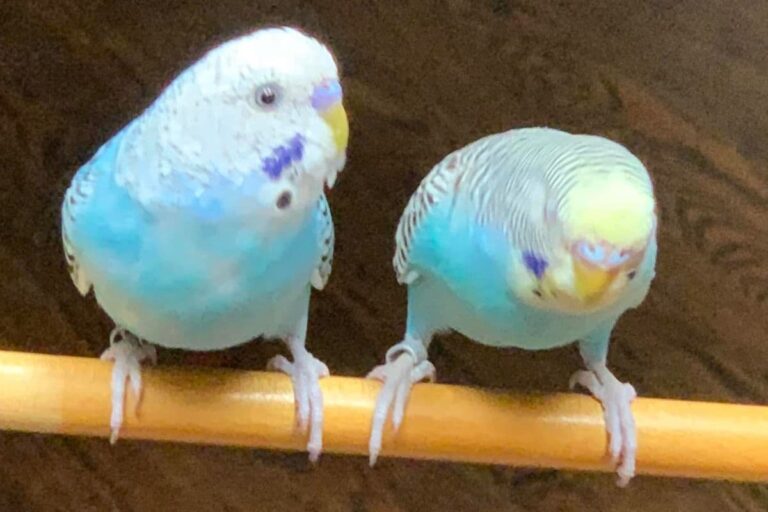Head Bobbing in Parakeets
Disclosure: The opinions expressed in this post are my own. This post may also contain affiliate links, which means that I will receive a commission if you decide to purchase through my links, at no additional cost to you. As an Amazon Associate, I earn from qualifying purchases.
Why do parakeets bob their heads? It’s a question that baffles new bird owners. Some say it’s a way to communicate, while others believe it’s simply a way to show off. But the true answer is not as complicated than you might think.
In this blog, we’ll explore the many reasons why parakeets bob their heads. From communication to courtship, there are many reasons why these little birds engage in this peculiar behavior.
Is It Normal for My Parakeet to Bob Its Head?
Head bobbing is a common and natural behavior exhibited by parakeets, and it is completely normal for them to engage in this behavior. In fact, head bobbing is a form of communication used by parakeets to express a variety of emotions and intentions.
Head bobbing is seen more often in baby parakeets than adults.
If you notice your parakeet head bobbing more than usual, it is not normal behavior, and it may be a sign that they are feeling stressed or anxious. In this case, try to provide them with a calm environment and plenty of toys and activities to keep them occupied.
Why Do Parakeets Bob Their Heads?
Excitement & Happiness
One of the most common reasons for head bobbing in parakeets is to show excitement or happiness. If you see your parakeet bobbing its head up and down rapidly, it is likely trying to communicate its enthusiasm about something. This could be in response to a favorite toy, a new person entering the room, or even just a particularly tasty treat.
Aggression
Head bobbing can also be a sign of aggression in parakeets. If a parakeet is feeling threatened or challenged, it may bob its head as a way of showing its dominance and how it’s the baddest bird around. This behavior is often accompanied by other aggressive behaviors, such as puffing out its feathers or making loud vocalizations.
Parakeets are also very territorial animals, and will often bob their heads aggressively when they feel their territory is being threatened. This behavior is most commonly seen when another parakeet enters the parakeet’s territory, and they want to exert their dominance as the alpha bird.
Seeking Attention or Food
In addition to expressing emotions, head bobbing can also be a way for our feathered friends to solicit attention or food. If a parakeet wants your attention, it may start bobbing its head up and down in an effort to get you to pay attention to it. Similarly, a parakeet may bob its head when it is hungry or wants a treat.
Boredom
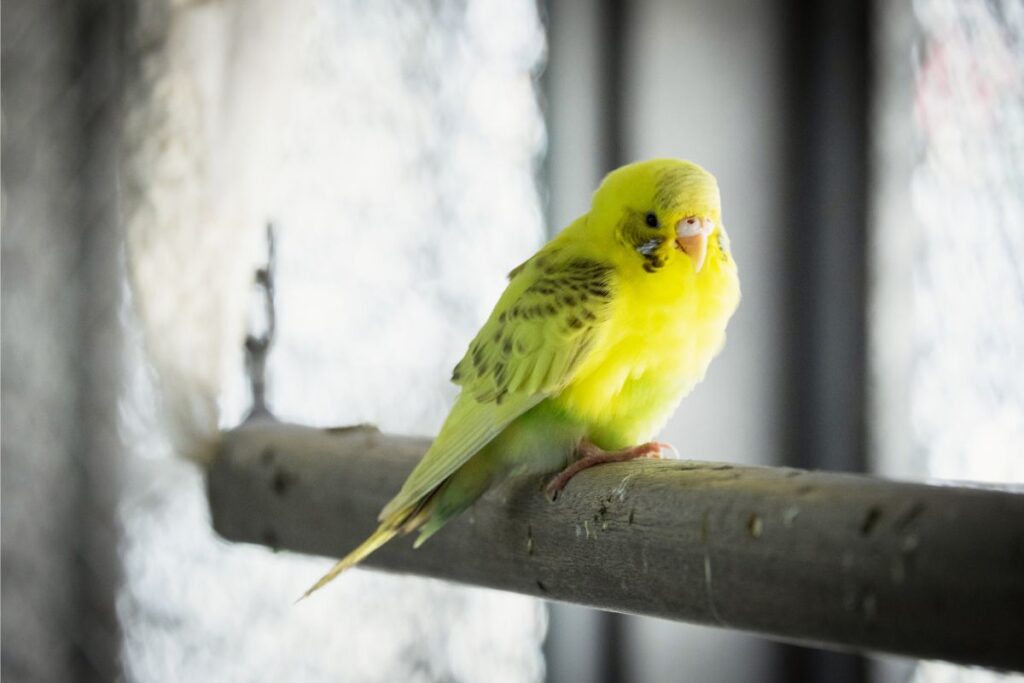
One of the main reasons your parakeet may be head bobbing is because he’s bored. If he’s in a cage by himself with nothing to do all day, he may start head bobbing as a way to relieve the boredom.
Try giving your parakeet more toys to play with, different perches to sit on, and even adding another bird to his cage so he has a friend to interact with. Often, just making some simple changes to his environment will be enough to stop the head bobbing behavior.
Male Parakeets Looking For a Mate
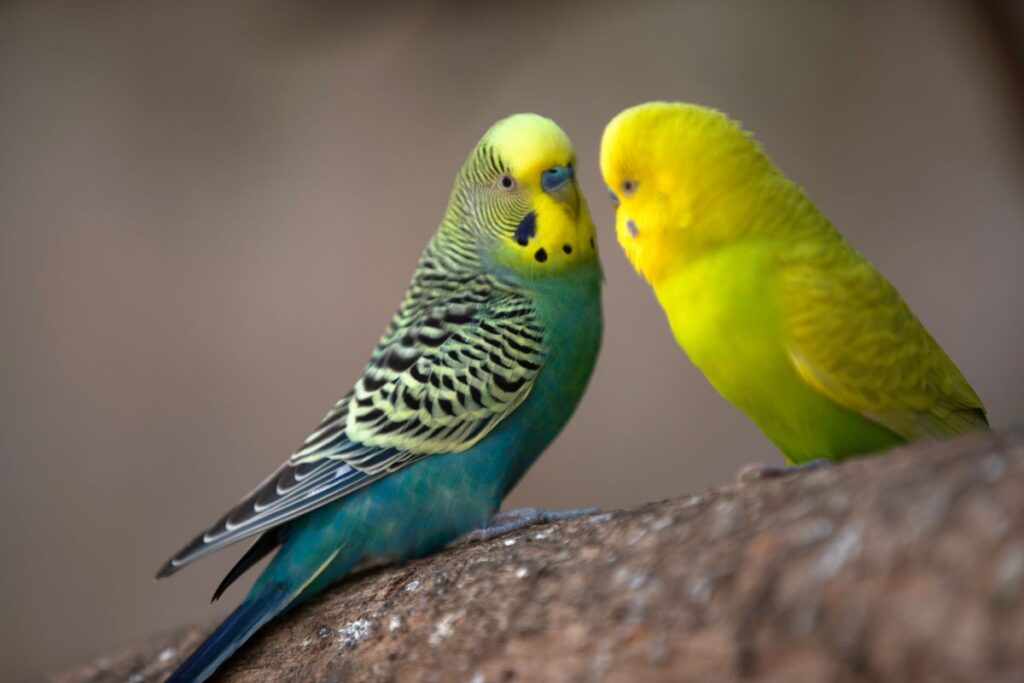
Male parakeets will often do a mating dance that includes head bobbing when they are looking for a mate. This is usually done in combination with singing a special mating song. This tends to happen often if the male and female are placed in separate cages.
If the female parakeet is interested, she may respond with her own head bobbing. She may also make sounds indicating her interest.
Dancing
Dancing isn’t just something people do. Animals dance, too! Scientists believe that animals dance for similar reasons that people do: to attract mates, to strengthen social bonds, and even just for fun.
It’s not uncommon for parakeets to dance to music or other sounds that they find particularly enjoyable. If you notice your parakeet dancing along to a favorite song or the sound of a familiar voice, it’s a good sign that your bird is happy and healthy.
In addition to dancing, parakeets may also exhibit other behaviors that are related to courtship, such as preening and singing. They may just be trying to impress other female birds. These behaviors are all natural and should not be cause for concern unless they are accompanied by other unusual or concerning behaviors.
Stress
Stress can manifest in many ways, including vocalizations, plucking, aggression, and destruction of property. One of the most common indicators of stress in parakeets is head-bobbing.
There are many possible causes of stress in parakeets, including a lack of social interaction, changes in environment or routine, loud noises, and even certain types of food. If your parakeet is head-bobbing, it’s important to try to identify the cause so that you can take steps to reduce your bird’s stress level.
Illness & Underlying Health Problems
While head bobbing is a common behavior exhibited by parakeets, in some cases it can be a sign of illness or underlying health problems. If you notice your parakeet bobbing its head excessively or in a way that seems agitated or anxious, it may be experiencing discomfort or pain.
There are a variety of health issues that can cause head bobbing in parakeets, including:
- Respiratory infections
- Gastrointestinal problems
- Neurological disorders
These issues can cause a variety of symptoms, including lethargy, loss of appetite, and difficulty breathing.
If you suspect that your parakeet is ill, it’s important to consult with a veterinarian as soon as possible. A veterinarian will be able to diagnose the underlying cause of your parakeet’s head bobbing and provide appropriate treatment.
By understanding the potential causes of head bobbing in parakeets and taking steps to address any underlying health issues, you can help ensure that your feathered friend stays happy and healthy.
Tips for Responding to Head Bobbing in Parakeets
Don’t try to confront a parakeet that is displaying aggressive head bobbing
If a parakeet is displaying aggressive head bobbing, it is important not to confront or challenge them. This can escalate the situation and may cause the parakeet to become even more aggressive or anxious.
Instead, it is best to give the parakeet space and time to calm down. This can be done by removing yourself or any potential triggers from the parakeet’s environment, such as other pets or loud noises.
It is also important to keep in mind that parakeets are prey animals, and they may feel threatened or fearful when confronted by larger animals, including humans. Therefore, it is important to approach and handle parakeets with care, using a gentle and calm demeanor.
If the head bobbing is a sign of courtship, consider separating the parakeets or providing them with a suitable mate
If a parakeet is displaying head bobbing as a sign of courtship or mating behavior, it may be necessary to separate the parakeets or provide them with a suitable mate. This is because parakeets are social animals and may become anxious or distressed if they are unable to fulfill their natural mating and nesting instincts.
If the parakeets are not already bonded, it may be necessary to introduce them to each other gradually, using techniques such as “step-up” training and positive reinforcement to establish a trusting relationship.
If the parakeets are already bonded, but do not have a suitable mate, it may be necessary to provide them with a compatible companion. This can be another parakeet of the same or opposite sex, depending on the preferences and needs of the individual birds.
If the head bobbing is a form of communication, try to respond in a way that the parakeet will understand and find reinforcing
If a parakeet is using head bobbing as a form of communication, it is important to try to respond in a way that the parakeet will understand and find reinforcing. This can help strengthen the bond between the parakeet and their owner and encourage the parakeet to continue using this form of communication.
One way to respond to head bobbing in parakeets is to observe their body language and behavior and try to understand what they are trying to communicate. For example, if the parakeet is bobbing their head while looking at a particular object or location, they may be indicating that they want to go there or have something to do with it.
When Should You Be Worried About Your Parakeet’s Head Bobbing?
If your parakeet is healthy, you shouldn’t be too concerned about head bobbing that happens every now and then. However, if your parakeet is bobbing excessively, it could be a sign of a health problem. If you notice your parakeet head bobbing more than usual, or if head bobbing is accompanied by other symptoms such as lethargy, appetite loss, or increased respiration, take your bird to the vet to get checked out.
Final Words
Head bobbing is a common behavior in parakeets that can have a variety of meanings and contexts. It can be a sign of aggression or dominance, a courtship or mating behavior, or a way to communicate with their owners or other parakeets. Understanding the context and other body language cues is important in interpreting head bobbing in parakeets, as is considering the overall temperament and personality of the individual bird.
In responding to head bobbing in parakeets, it is important to give them space and time to calm down if they are displaying aggressive behavior, consider separating or providing them with a suitable mate if the head bobbing is a sign of courtship, and use positive reinforcement techniques to reward them for using head bobbing as a form of communication.
If the head bobbing behavior persists or becomes a problem, seeking the guidance of a veterinarian or bird behavior specialist can be helpful in identifying and addressing any underlying issues.



